Kaamil Ahmed publishes ‘first book-length exploration’ of Rohingya lives abroad

Of the decades-long history of Rohingya diaspora in the subcontinent, August 2017 saw over 700,000 Rohingya lives displaced from their homes in Myanmar through a single military operation. In I Feel No Peace (Hurst, 2022), journalist Kaamil Ahmed offers the "first book-length exploration" of their experiences in exile.
A foreign correspondent who has reported on conflict, labour and the environment in South Asia and the Middle East for The Guardian, Vox, IRIN, Mongabay and Middle East Eye, Ahmed, a London School of Economics graduate, has worked extensively on the Rohingya crisis.
"I had noticed a while the reports of boats of Rohingya being turned back by governments, left stranded at sea and going down in the middle of the night", he tells Daily Star Books. "But it was only in 2015, when mass graves were discovered in the Thai trafficking camps, that I really delved into reporting on the Rohingya."
He noticed how much of the international media focus on Rohingyas skewed away from the Bay of Bengal side. And so he visited the camps in Cox's Bazar.
"I met registered refugees who had been in Bangladesh almost three decades but also saw the vast, unmanaged informal camps where people could just go missing and no one beyond their neighbours noticed", he shares. "I learned how the traffickers had developed a really complex method of moving people and demanding ransoms from their families, how they'd even kidnap people just to make sure their boats were full."
"That this had gone on for so long without anyone really caring set me off on a mission to try and understand how and why the Rohingya had been failed to the extent that they could be exploited on such a scale", he says.
I Feel No Peace follows two intersecting timelines—the journeys of Rohingyas who fled the Myanmar massacre in 2017, and the stories of refugees who came to Bangladesh in 1978 and the 1990s. Of the latter, some stayed back in the camps, while others were returned. Ahmed has spent years getting to know them, their interviews comprising hundreds of hours of interviewing.
Research for this project began in 2015 with Ahmed's first reporting trips to Kutupalong and Nayapara, where his archival research tried to understand the "fluid" nature of the Bangladesh-Myanmar border.
He explains, "There is often a question of where did the Rohingya come from but the River Naf is not particularly wide and so I was researching just how often the borders between the pre-British kingdoms and sultanates moved." In an effort to understand the extent of the trafficking, Kaamil Ahmed spent time in the camps and spoke to Rohingyas in Malaysia, Indonesia, Saudi Arabia and India to understand the extent of the trafficking.
"In the end [of the book], I think you see how some of the failures of humanitarian policy, and the international community's unwillingness to act, are leading the newer refugees to similar conditions that the older contingent faced", Ahmed points out.
In 2019, poets and editors James Byrne (UK) and Shehzar Doja (Bangladesh) jointly published I Am A Rohingya: Poetry from the Camps and Beyond (Arc Publications). The project transcribes and translates songs and poetry that reflect the culture and traditions of the Rohingya people.
In 2021, Bangladeshi journalist Masum Al-Mollah compiled his interviews and research conducted over several years of visits to the newly built refugee camps in Bhashan Char. His book, Bhashan Char: Bastion in the Bay (Agamee Prokashoni, 2021) explores whether the camp, rife with public health and security threats, is a sustainable living solution for the Rohingya refugees living in Bangladesh.
I Feel No Peace is the latest in this string of books exploring the Rohingya experience. It offers, in particular, a narrative account of their history and their experience with NGOs and the UN.
There are plans to distribute the book in Bangladesh and India, the author tells The Daily Star.

 For all latest news, follow The Daily Star's Google News channel.
For all latest news, follow The Daily Star's Google News channel. 

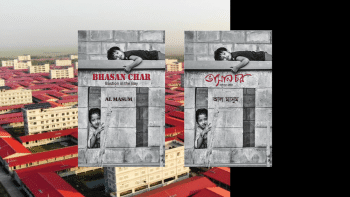



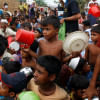
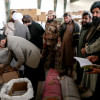
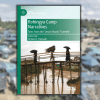
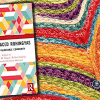


Comments